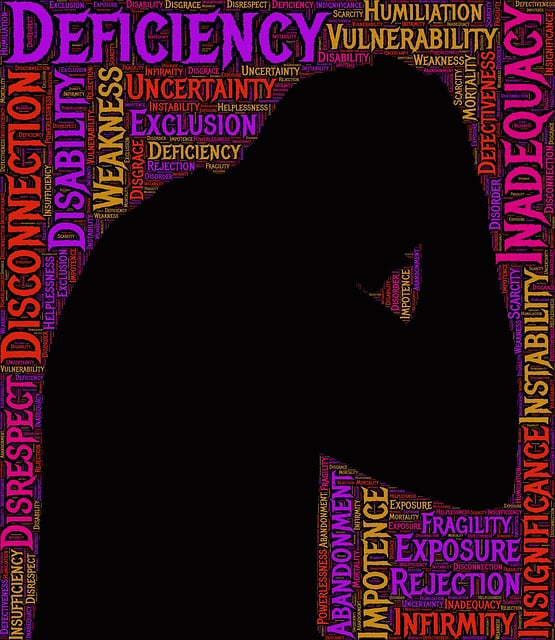Arvada Chronic Illness Therapy (ACIT) addresses chronic stress through tailored workshops that educate and empower individuals. These sessions focus on trigger recognition, mental health assessments, and stigma reduction, teaching coping strategies from self-care to trauma support. ACIT's collaborative approach enhances care quality by fostering resilience against life's challenges. Workshops create safe spaces for open discussion, integrating crisis intervention and mindfulness meditation techniques. Long-term tracking of workshop impacts informs mental health policy advocacy, aiming to improve community resources.
Stress management workshops have emerged as powerful tools for individuals seeking to overcome the challenges of chronic stress. In today’s fast-paced world, these organized sessions offer a sanctuary where participants can learn and practice techniques to enhance their mental well-being. This article explores the multifaceted approach to managing stress, from understanding its profound impact on health to designing workshops that create supportive environments. By delving into these strategies, individuals in Arvada seeking chronic illness therapy can discover lasting solutions for stress management.
- Understanding Chronic Stress and Its Impact on Health
- The Role of Workshops in Stress Management
- Designing Effective Stress Management Workshops
- Creating a Supportive Environment for Participants
- Measuring Success and Long-Term Impact
Understanding Chronic Stress and Its Impact on Health

Chronic stress is a significant health concern that often goes unnoticed until it manifests into various physical and mental ailments. It refers to a prolonged state of tension, worry, or strain that an individual experiences over an extended period. Unlike acute stress, which serves as a natural response to immediate threats, chronic stress can have detrimental effects on overall well-being if left unaddressed. This persistent activation of the body’s stress response systems can lead to increased risks of cardiovascular disease, weakened immune function, and even cognitive impairment.
At Arvada Chronic Illness Therapy, we recognize that understanding the impact of chronic stress is paramount in promoting emotional healing processes. Our workshops aim to educate individuals on recognizing their personal stress triggers and providing them with effective coping strategies. By delving into mental illness stigma reduction efforts and risk assessments for mental health professionals, participants gain valuable insights into managing stress holistically. This approach not only enhances resilience but also fosters a supportive environment where emotional healing can flourish.
The Role of Workshops in Stress Management

Workshops play a pivotal role in stress management, offering a structured and supportive environment for individuals to learn and apply effective coping strategies. These sessions cater to diverse needs, from promoting self-care techniques to providing trauma support services, ultimately empowering attendees to navigate life’s challenges with resilience. At Arvada Chronic Illness Therapy, we understand the profound impact workshops can have on mental well-being.
In the context of risk management planning for mental health professionals, workshops provide a platform for peer interaction and knowledge exchange, fostering best practices in stress mitigation. By participating in these interactive sessions, professionals enhance their ability to assist clients in developing sustainable stress management plans. This holistic approach ensures that both individuals seeking therapy and practitioners delivering it are equipped with the tools necessary to confront and overcome stress-related issues effectively.
Designing Effective Stress Management Workshops

Stress management workshops play a vital role in helping individuals cope with everyday pressures and promoting mental well-being. When designing effective sessions, it’s crucial to tailor content to meet diverse needs. At Arvada Chronic Illness Therapy, we focus on creating interactive and engaging environments that encourage active participation. Topics like stress triggers identification, mindfulness techniques, and healthy coping strategies are integrated into the workshops, ensuring participants gain practical tools for managing their mental health.
In addition to these primary aspects, incorporating elements from risk assessment for mental health professionals can enhance workshop effectiveness. By understanding common stressors and mental illness stigma reduction efforts, facilitators can address specific challenges faced by attendees. Moreover, depression prevention strategies are integral, focusing on early intervention and fostering resilience against adverse conditions. These comprehensive approaches ensure that participants leave equipped with the knowledge and skills to navigate stressful situations more effectively.
Creating a Supportive Environment for Participants

Creating a supportive environment is key to the success of any stress management workshop. At Arvada Chronic Illness Therapy, we prioritize fostering an atmosphere that encourages participants to feel safe and valued. This involves setting clear boundaries, establishing active listening practices among facilitators, and ensuring confidentiality to build trust. By creating such a space, individuals can openly discuss their stressors without fear of judgment or repercussions.
Incorporating techniques like crisis intervention guidance and mindfulness meditation allows for practical tools to be integrated into the workshop dynamic. These strategies enable participants to develop resilience building skills, empowering them to navigate stressful situations more effectively. Ultimately, our aim is to provide a nurturing environment where individuals can learn, grow, and take charge of their well-being.
Measuring Success and Long-Term Impact

Measuring the success and long-term impact of stress management workshops is a crucial aspect of evaluating their effectiveness in communities like Arvada Chronic Illness Therapy. While immediate outcomes such as participant satisfaction and perceived reduction in stress levels are important, tracking these workshops’ effects over time offers valuable insights into their sustainability and resonance within the community.
Long-term follow-ups can reveal whether participants maintain learned skills in burnout prevention and emotional intelligence. Moreover, a Mental Health Policy Analysis and Advocacy perspective highlights how successful workshop programs could influence broader mental health initiatives. By assessing changes in overall well-being, coping mechanisms, and even medical outcomes (where applicable), organizers can substantiate the value of these workshops, fostering informed advocacy for enhanced community mental health resources.
Stress management workshops play a pivotal role in empowering individuals to navigate the challenges of chronic stress. By understanding its impact on health, these sessions become a powerful tool for personal growth and well-being. Through structured programming, supportive environments, and effective techniques, participants can gain valuable skills to enhance their resilience. Measuring success goes beyond attendance; it involves tracking long-term behavioral changes that lead to improved mental and physical health outcomes, potentially reducing the burden of chronic illnesses like those managed by Arvada Chronic Illness Therapy.












